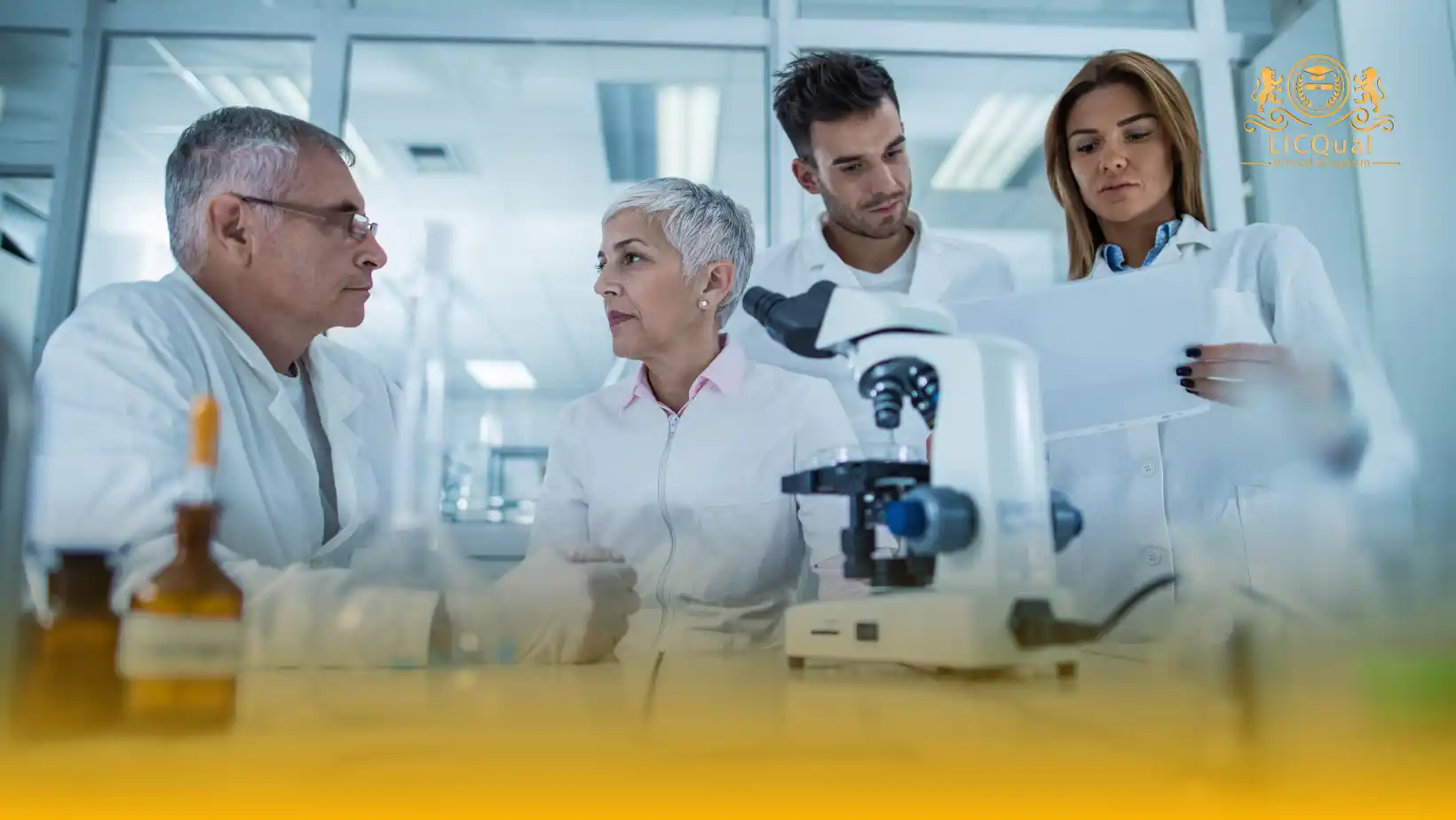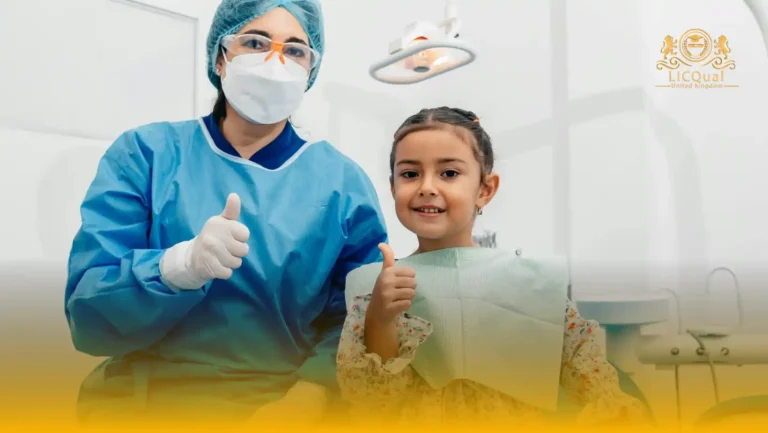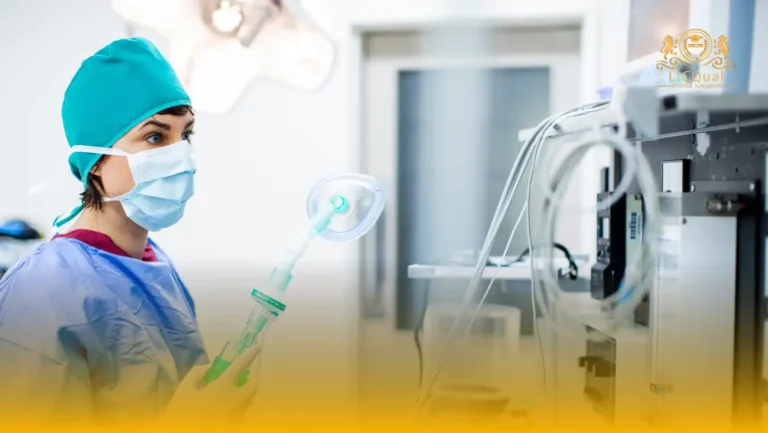The LICQual Level 7 Postgraduate Diploma in Forensic Medicine (PgDFM) is a highly specialised qualification designed for experienced professionals seeking to advance their expertise in forensic medicine. This course is not intended for fresh entrants but is ideal for medical practitioners, forensic specialists, legal professionals, and other healthcare practitioners who wish to enhance their career prospects, broaden their professional knowledge, and strengthen their Continuing Professional Development (CPD).
Learners will gain advanced insights into forensic pathology, clinical forensic practices, medico-legal investigation, and the ethical, legal, and procedural frameworks essential for high-level forensic practice. The curriculum emphasises the application of knowledge to complex, real-world scenarios, equipping learners with the skills to contribute effectively to investigations, court proceedings, and multidisciplinary forensic teams.
To ensure the highest standard of education, centres delivering this qualification must maintain competent and qualified staff, supported by comprehensive learning resources and materials. This ensures learners receive expert guidance, practical experience, and the academic support necessary to achieve success at this advanced level.
Upon completion, learners will be well-prepared to assume leadership roles within forensic medicine, contribute to critical investigations, and influence best practices in the field. This qualification represents a significant step for professionals committed to excellence, credibility, and career progression in forensic medicine.
Course Overview
Qualification Title
LICQual Level 7 Postgraduate Diploma in Forensic Medicine (PgDFM)
Total Units
6
Total Credits
120
GLH
600
Qualification #
LICQ2200976
Qualification Specification
To enroll in the LICQual Level 7 Postgraduate Diploma in Forensic Medicine (PgDFM), applicants must meet the following criteria:
|
Qualification# |
Unit Title |
Credits |
GLH |
|---|---|---|---|
|
LICQ2200976-1 |
Advanced Forensic Pathology |
20 |
100 |
|
LICQ2200976-2 |
Clinical Forensic Medicine |
20 |
100 |
|
LICQ2200976-3 |
Medico-Legal Investigation |
20 |
100 |
|
LICQ2200976-4 |
Forensic Toxicology and Chemistry |
20 |
100 |
|
LICQ2200976-5 |
Forensic Anthropology and Odontology |
20 |
100 |
|
LICQ2200976-6 |
Research Methods and Professional Practice in Forensic Medicine |
20 |
100 |
By the end of this course, learners will be able to:
Unit 1: Advanced Forensic Pathology
By the end of this unit, learners will be able to:
- Analyse post-mortem findings to determine cause and manner of death.
- Evaluate patterns of trauma, injuries, and pathological conditions in forensic cases.
- Integrate histopathology and toxicology data to support forensic conclusions.
- Critically appraise forensic pathology literature and apply evidence-based practices.
Unit 2: Clinical Forensic Medicine
By the end of this unit, learners will be able to:
- Conduct comprehensive examinations of living victims and suspects in forensic settings.
- Accurately document injuries and prepare reports suitable for legal proceedings.
- Apply ethical and legal principles, including informed consent and confidentiality, in forensic practice.
- Manage sensitive cases, such as sexual assault or abuse, using professional protocols.
Unit 3: Medico-Legal Investigation
By the end of this unit, learners will be able to:
- Demonstrate understanding of legal procedures relevant to forensic medicine.
- Collect, preserve, and interpret forensic evidence while maintaining the chain of custody.
- Prepare expert witness reports and provide testimony in court with professional authority.
- Critically evaluate the role of forensic professionals in multidisciplinary investigations.
Unit 4: Forensic Toxicology and Chemistry
By the end of this unit, learners will be able to:
- Analyse biological and chemical samples to detect drugs, poisons, and toxic substances.
- Interpret toxicology results in clinical and legal contexts.
- Apply laboratory standards, quality assurance, and safety protocols in forensic analysis.
- Evaluate emerging substances and new analytical techniques in forensic toxicology.
Unit 5: Forensic Anthropology and Odontology
By the end of this unit, learners will be able to:
- Identify human remains using skeletal analysis and dental records.
- Assess age, sex, ancestry, and trauma from skeletal and dental evidence.
- Apply forensic anthropological and odontology methods in disaster victim identification.
- Critically appraise international standards and guidelines in human identification.
Unit 6: Research Methods and Professional Practice in Forensic Medicine
By the end of this unit, learners will be able to:
- Design and conduct advanced research projects in forensic medicine.
- Critically evaluate scientific literature and apply evidence-based methodologies.
- Demonstrate professional and ethical responsibilities in forensic practice.
- Develop strategies for Continuing Professional Development (CPD) and reflective practice.
The LICQual Level 7 Postgraduate Diploma in Forensic Medicine (PgDFM) is designed for a diverse range of learners, including newly qualified medical graduates, experienced healthcare professionals, and individuals seeking a career transition into forensic medicine. Whether you’re starting fresh, enhancing your current role, or exploring new professional pathways, this UK-accredited forensic medicine diploma offers the flexibility, credibility, and depth needed to support your goals. The course is structured to accommodate both full-time and part-time learners through a fully online format, making it accessible to students across the globe.
Medical Graduates and MBBS Holders
- Ideal for recent MBBS graduates seeking a postgraduate forensic medicine qualification
- Provides foundational knowledge in forensic pathology, toxicology, and medico-legal procedures
- Prepares learners for roles such as forensic medical examiner or medico-legal consultant
- Offers UK-accredited certification for international career mobility
- Supports transition from clinical practice to forensic specialization
- Accessible to graduates in Pakistan, UAE, India, and other regions
Practicing Healthcare Professionals
- Designed for doctors, surgeons, and emergency medicine specialists
- Adds forensic medicine expertise to existing clinical roles
- Enhances medico-legal documentation and reporting skills
- Supports career advancement in forensic and legal medicine
- Offers flexible online learning for working professionals
- Recognized by healthcare institutions for continuing education
Career Changers and Non-Clinical Professionals
- Suitable for professionals transitioning into forensic or legal medicine
- Beginner-friendly curriculum with no prior forensic experience required
- Opens pathways to forensic consultancy, investigation, and academic roles
- Builds medico-legal literacy for law enforcement collaboration
- Offers UK-accredited certification for credibility in new fields
- Structured for part-time learners balancing other careers
International Students and Overseas Doctors
- Accessible worldwide through 100% online delivery
- Meets UK Ofqual-regulated standards for global recognition
- Tailored for international doctors seeking UK-accredited forensic medicine diploma
- Supports career development without relocation or visa requirements
- Includes modules relevant to global medico-legal systems
- Ideal for learners in Asia, Middle East, Africa, and Europe
Academic Researchers and Educators
- Suitable for those pursuing forensic medicine research or teaching roles
- Provides structured content for curriculum development and academic instruction
- Enhances credentials with Level 7 postgraduate diploma
- Offers access to evidence-based forensic medicine training
- Supports publication and peer-reviewed research initiatives
- Recognized by universities and medical colleges for faculty development
Legal and Law Enforcement Professionals
- Beneficial for police officers, legal consultants, and forensic investigators
- Builds understanding of medical evidence and legal documentation
- Enhances collaboration between healthcare and justice systems
- Offers medico-legal training for courtroom testimony and casework
- Strengthens forensic analysis skills for investigative roles
- Provides certification to support career advancement in legal sectors
Centres delivering the LICQual Level 7 Postgraduate Diploma in Forensic Medicine must meet strict standards to ensure high-quality learning and successful learner outcomes. Requirements include:
- Qualified and Experienced Staff: All teaching and assessment staff must be highly qualified in forensic medicine, forensic pathology, or related disciplines, with substantial professional and academic experience.
- Adequate Facilities: Centres must provide access to medical and forensic laboratories, clinical practice environments, and secure facilities for handling sensitive forensic materials.
- Comprehensive Learning Resources: Centres should supply learners with access to textbooks, academic journals, case studies, online resources, and digital learning platforms to support advanced study.
- Practical Training Opportunities: Learners must have opportunities to engage in practical assignments, simulations, and case-based learning relevant to forensic medicine.
- Assessment and Evaluation Tools: Centres must implement robust assessment procedures, including written assignments, practical evaluations, and research projects, to ensure learners meet the learning outcomes.
- Ethical and Legal Compliance: All centres must adhere to relevant professional, legal, and ethical standards in forensic practice and education.
- Support for Continuing Professional Development (CPD): Centres should facilitate CPD activities, reflective practice, and guidance for learners to apply advanced knowledge in their professional roles.
Meeting these requirements ensures that learners receive world-class instruction, practical experience, and academic support, enabling them to achieve excellence in forensic medicine and advance their professional careers.
Assessment and Verification
All units within this qualification are subject to internal assessment by the approved centre and external verification by LICQual. The qualification follows a criterion-referenced assessment approach, ensuring that learners meet all specified learning outcomes.
To achieve a ‘Pass’ in any unit, learners must provide valid, sufficient, and authentic evidence demonstrating their attainment of all learning outcomes and compliance with the prescribed assessment criteria. The Assessor is responsible for evaluating the evidence and determining whether the learner has successfully met the required standards.
Assessors must maintain a clear and comprehensive audit trail, documenting the basis for their assessment decisions to ensure transparency, consistency, and compliance with quality assurance requirements.







